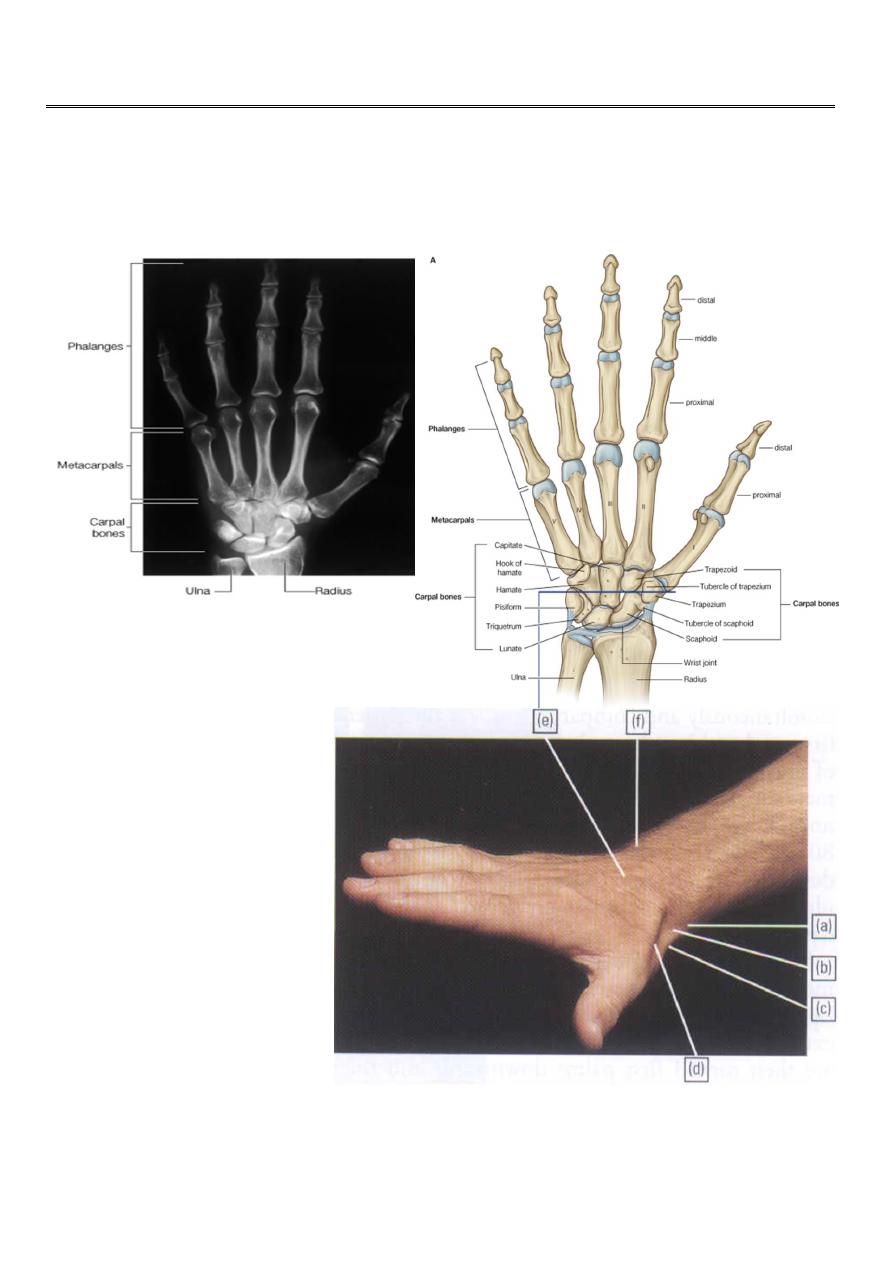
1
5th stage
Surgery
Lec-part3
Dr.Hisham
16/10/2016
Wrist and hand
Anatomy :
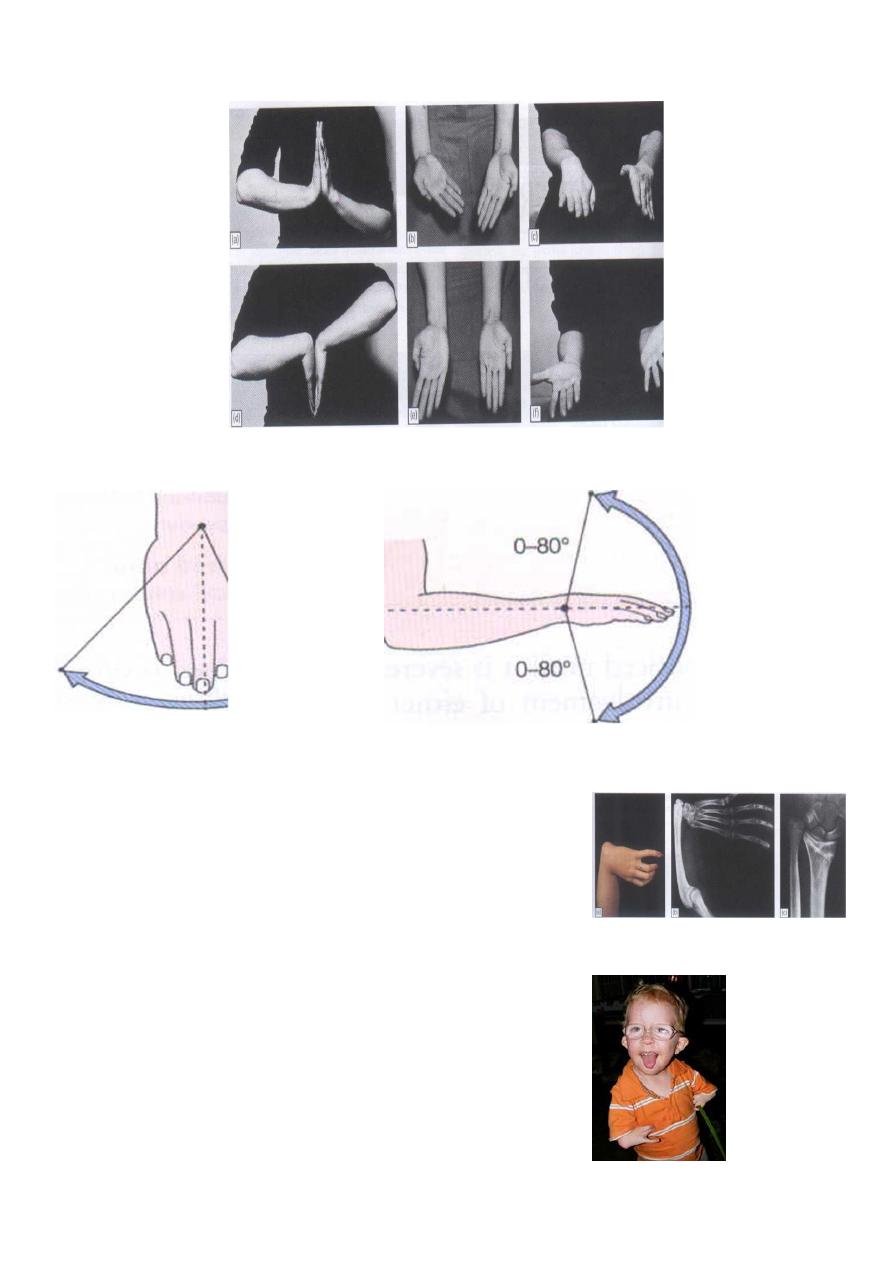
2
Movement :
Wrist deformities :
Congenital deformities :
Radial club-hand :
The infant is born with the wrist in marked radial deviation.
There is absence of the whole or part of the radius
and usually also the thumb.
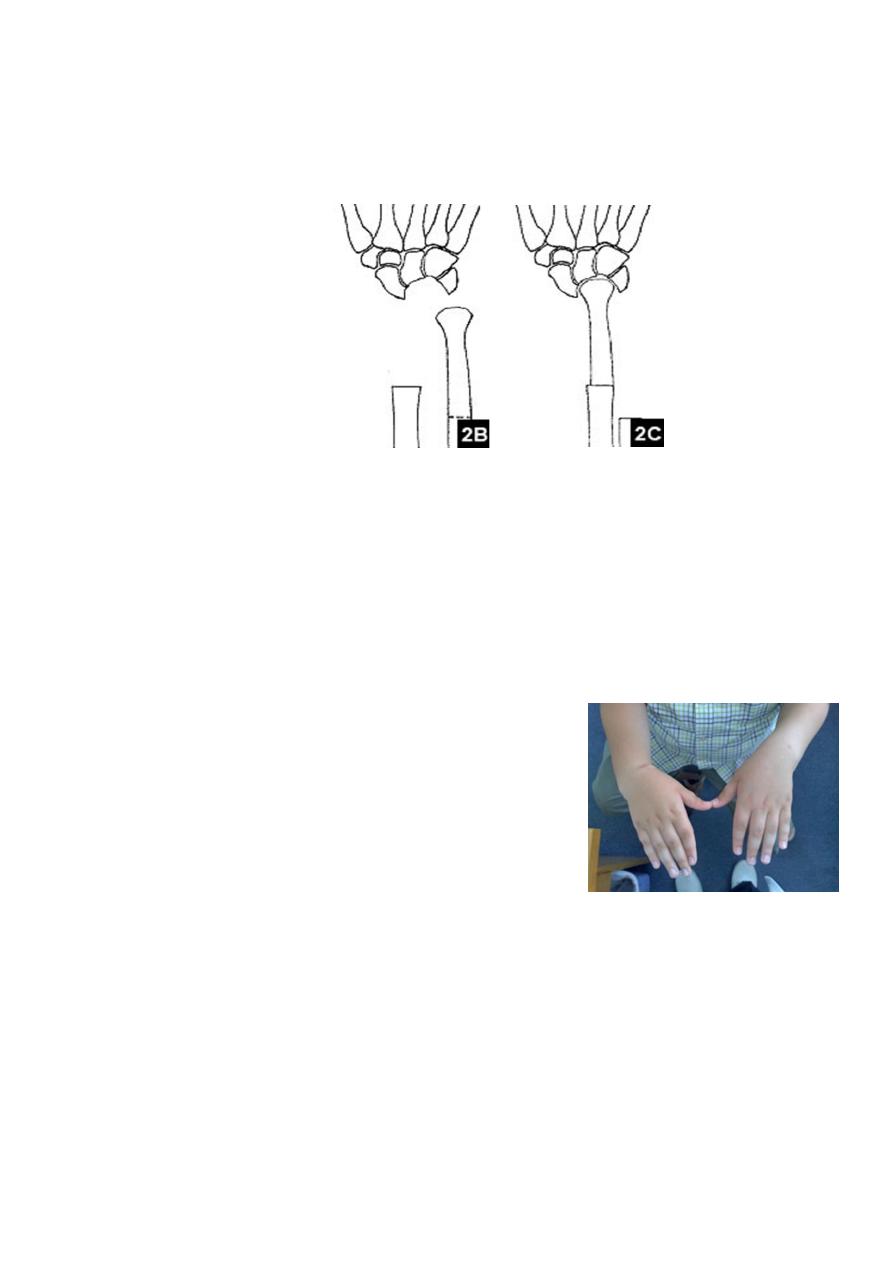
3
Treatment :
In the neonate consists of gentle manipulation and splintage.
If function deteriorates, centralization of the carpus over the ulna is recommended,
preferably before the age of 3 years.
Madelung's deformity :
The carpus is deviated forwards, leaving the ulnar head projecting on the back of the wrist.
Deformity is seldom marked before the age of 10 years
function is usually excellent
in the worst cases the deformity may have to be corrected
by Osteotomy
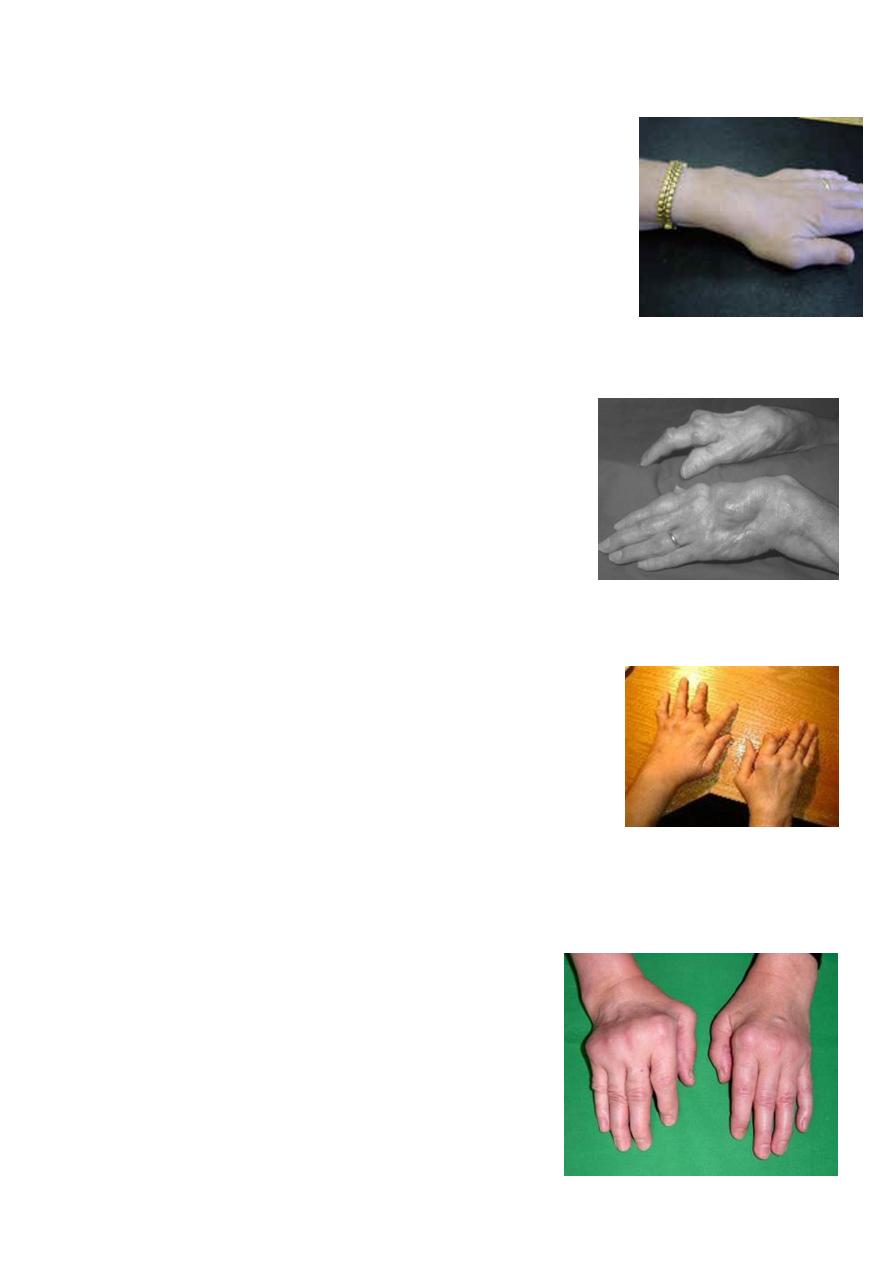
4
Rheumatoid arthritis :
Wrist:
o After the metacarpophalangeal joints,
the wrist is the most common site of rheumatoid arthritis.
o Pain.
o swelling and tenderness may at first be localized to the
radioulnar joint ,
or to one of the tendon sheaths
o Sooner or later the whole wrist becomes involved and
tenderness is much more ill-defined.
o In late cases the wrist is deformed and unstable
ulnar deviation
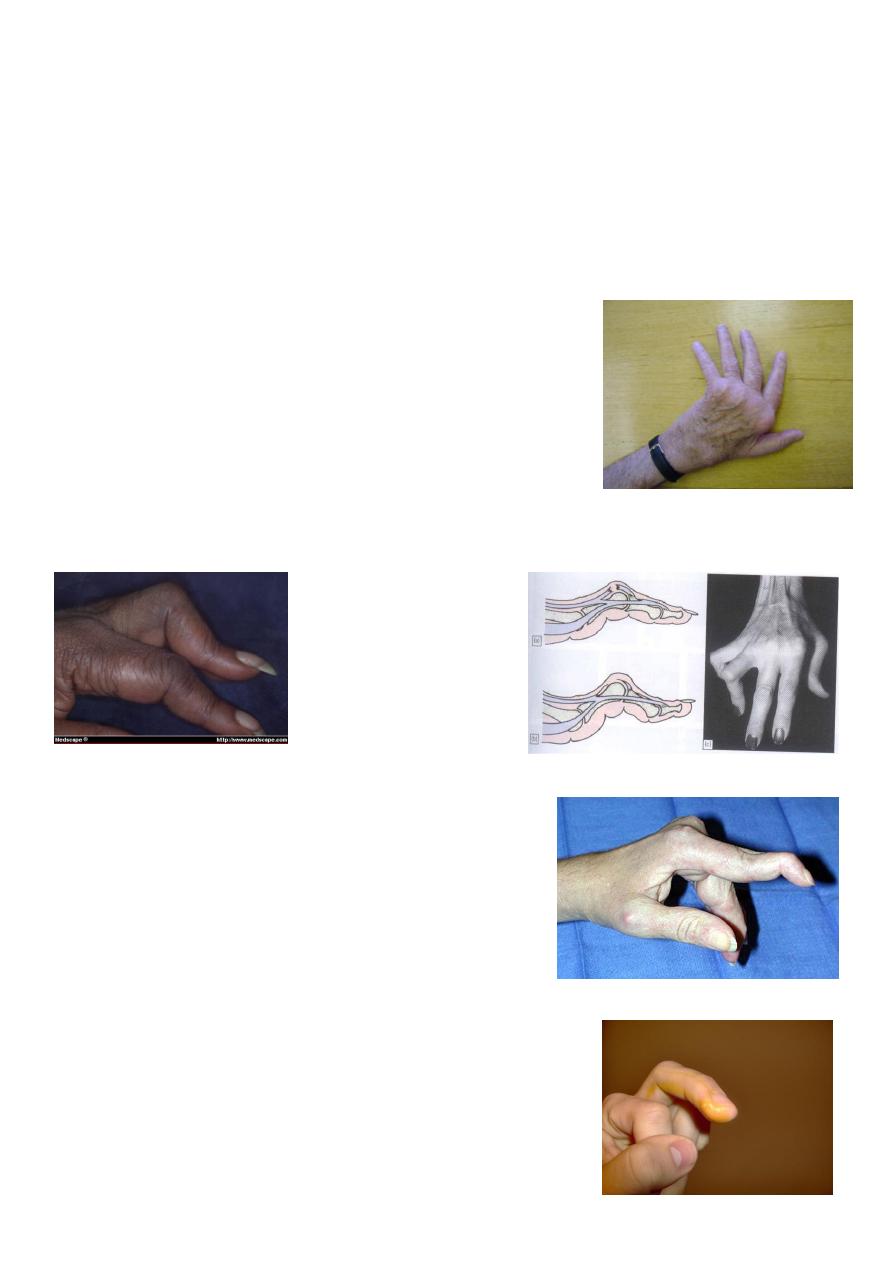
5
Hand and fingers:
- To start synovitis of the proximal joints and tendon sheaths; later, joint and tendon
erosions.
- final stage, joint instability and tendon rupture cause progressive deformity and loss
of function.
Pain and stiffness of the fingers are early symptoms
-
- As the disease progresses, deformities begin to appear
- Ulnar deviation of the fingers and subluxation of the
Mp joints, often associated with
boutonniere deformities :
Swan-neck
Extensor tendons may rupture where they cross the dorsum
of the wrist. causing one or more of the fingers to drop into
flexion.
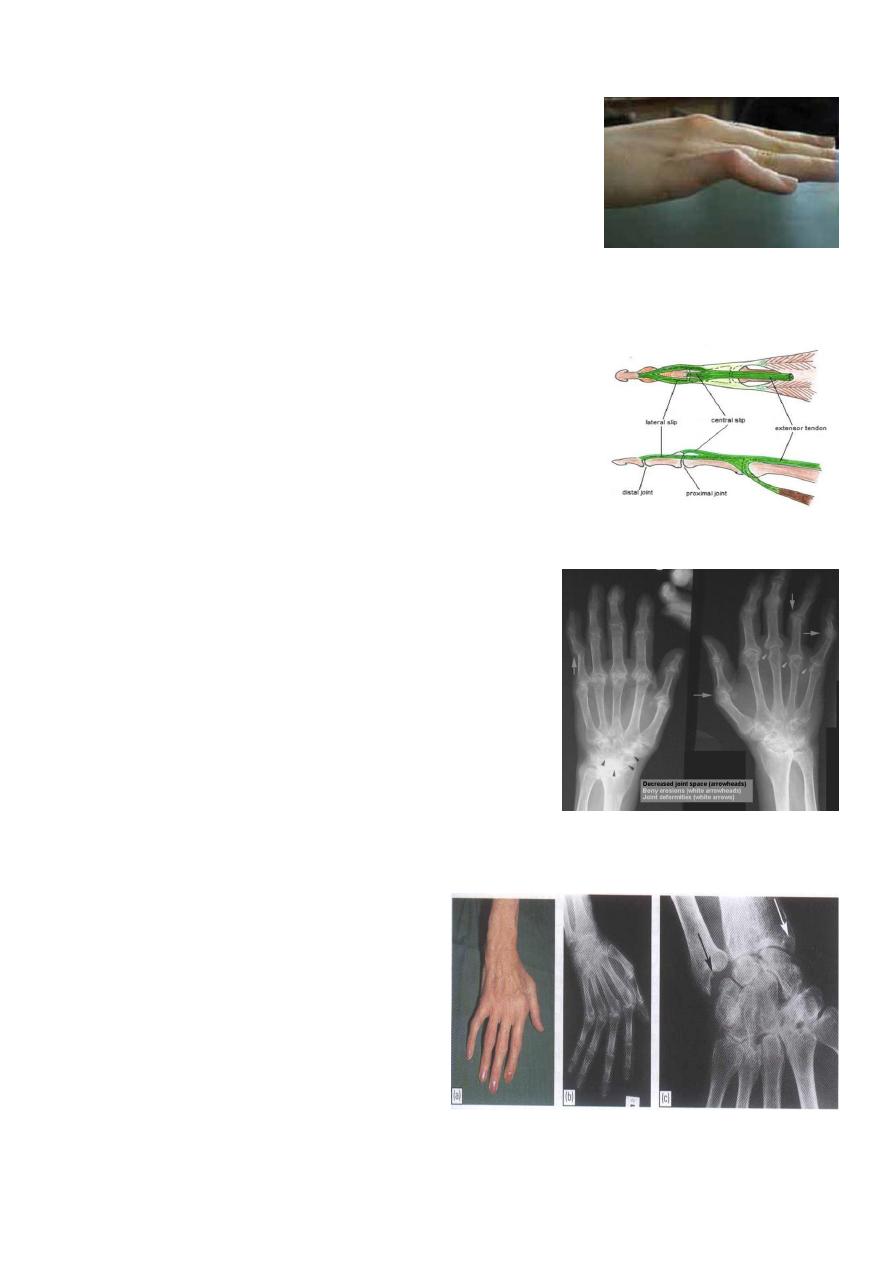
6
Dropped finger
Ruptured extensor pollicis longus
X-Ray
The characteristic features are osteoporosis and bony
erosions
Narrowing joint space. small periarticular erosions appear
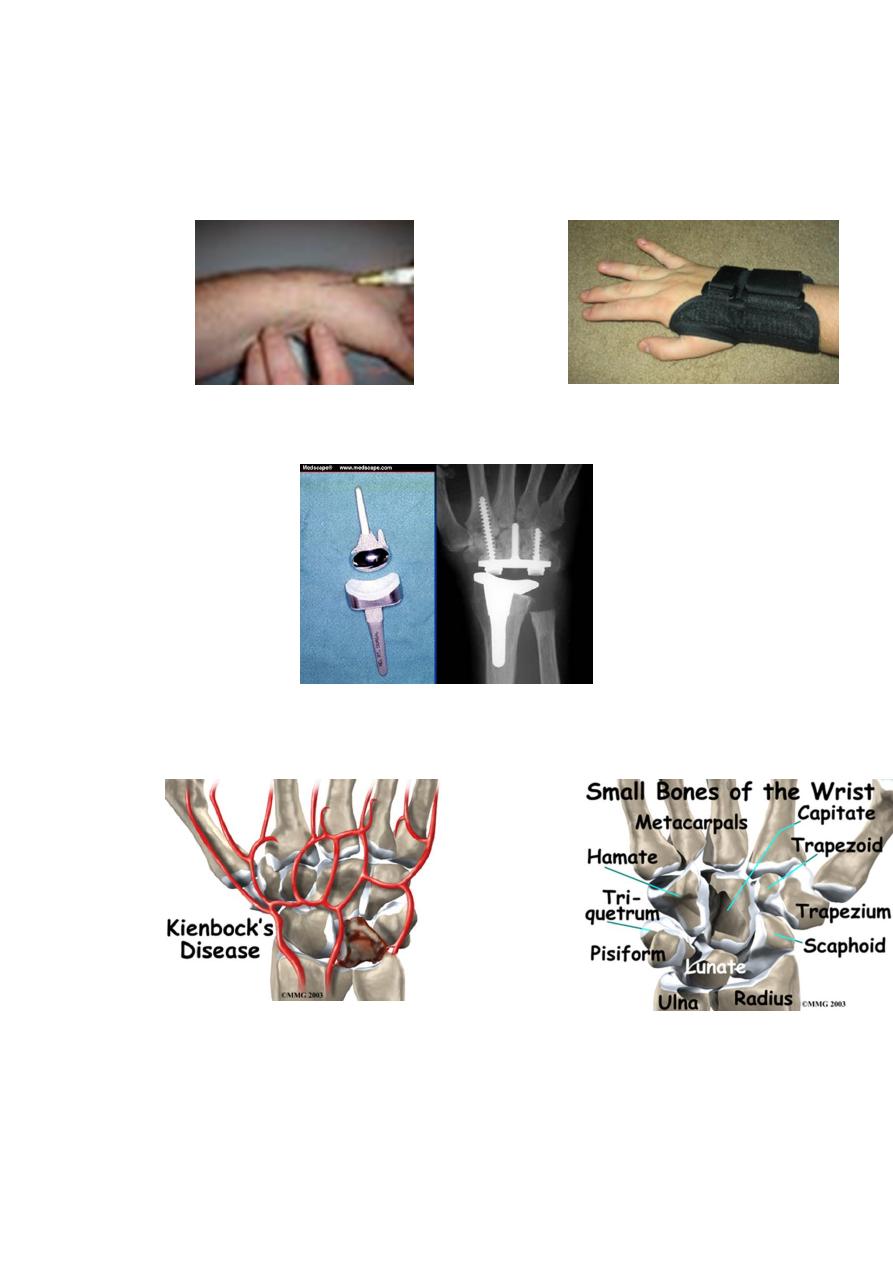
7
Treatment :
Management in the early stage consists of splintage
local injection of corticosteroids
Combined with systemic treatment
At late stage surgery different type
KIENBOCK'S DISEASE :
After injury or stress
The lunate bone may develop a patchy avascular necrosis
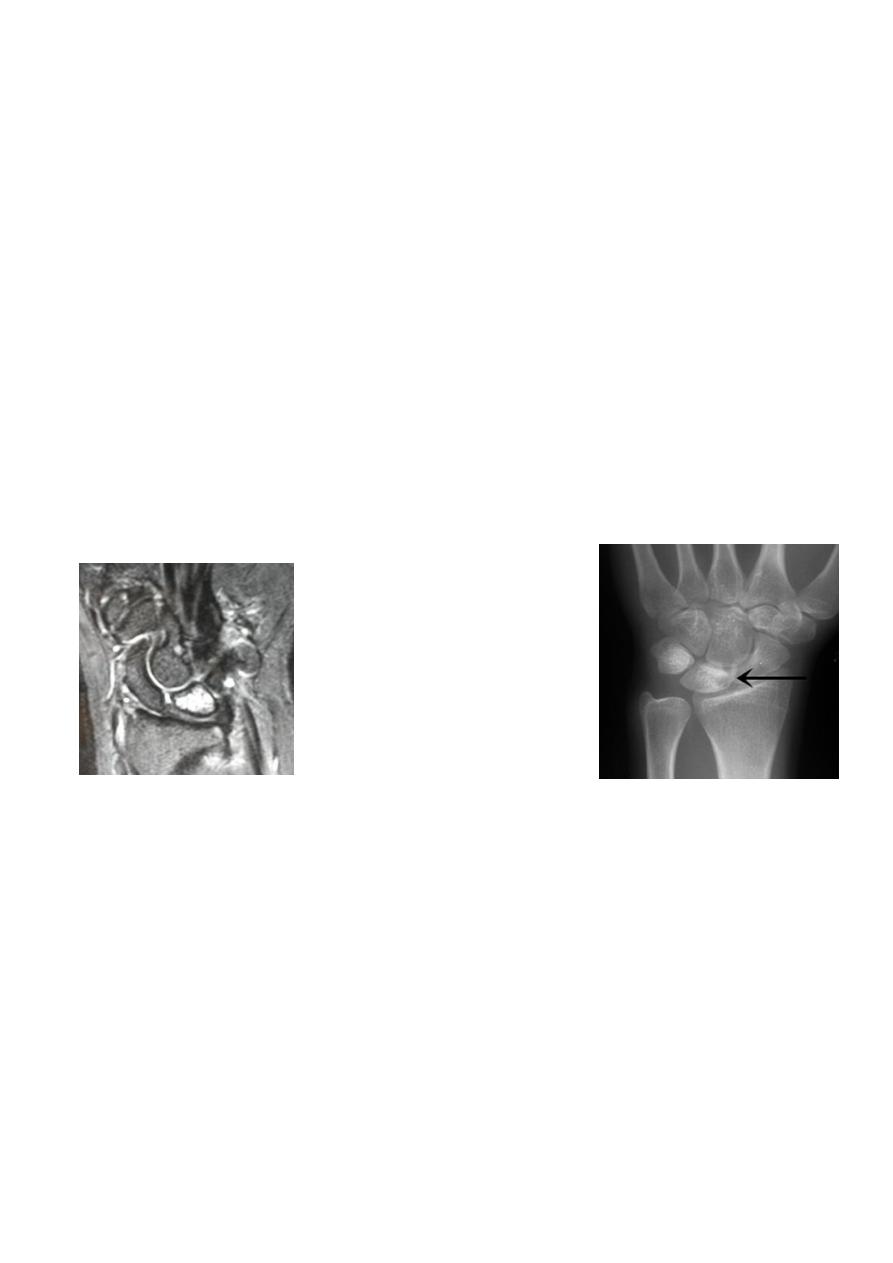
8
A predisposing factor :
may be relative shortening of the ulna which could result in excessive stress being
applied to the lunate where it is squeezed between the distal surface of the
(over-long) radius and the second row of carpal bones
The patient, usually a young adult.
Complains of ache and stiffness.
Tenderness is localized to the centre of the wrist on the dorsum.
wrist extension may be limited.
Imaging :
The earliest signs of osteonecrosis can be detected only by MRI.
Typical x-ray signs are increased density in the lunate.
later osteoarthritis of the wrist.
Treatment :
During the early stage, while the shape of the lunate is more or less normal,
osteotomy of the distal end of the radius may reduce pressure on the bone and
thereby protect it from collapsing.
In late cases, partial wrist arthrodesis may be the only option.
Decuervain's disease :
Tenovaginitis of the first dorsal compartment is usually seen in women between the ages
of 30 and 50 years .
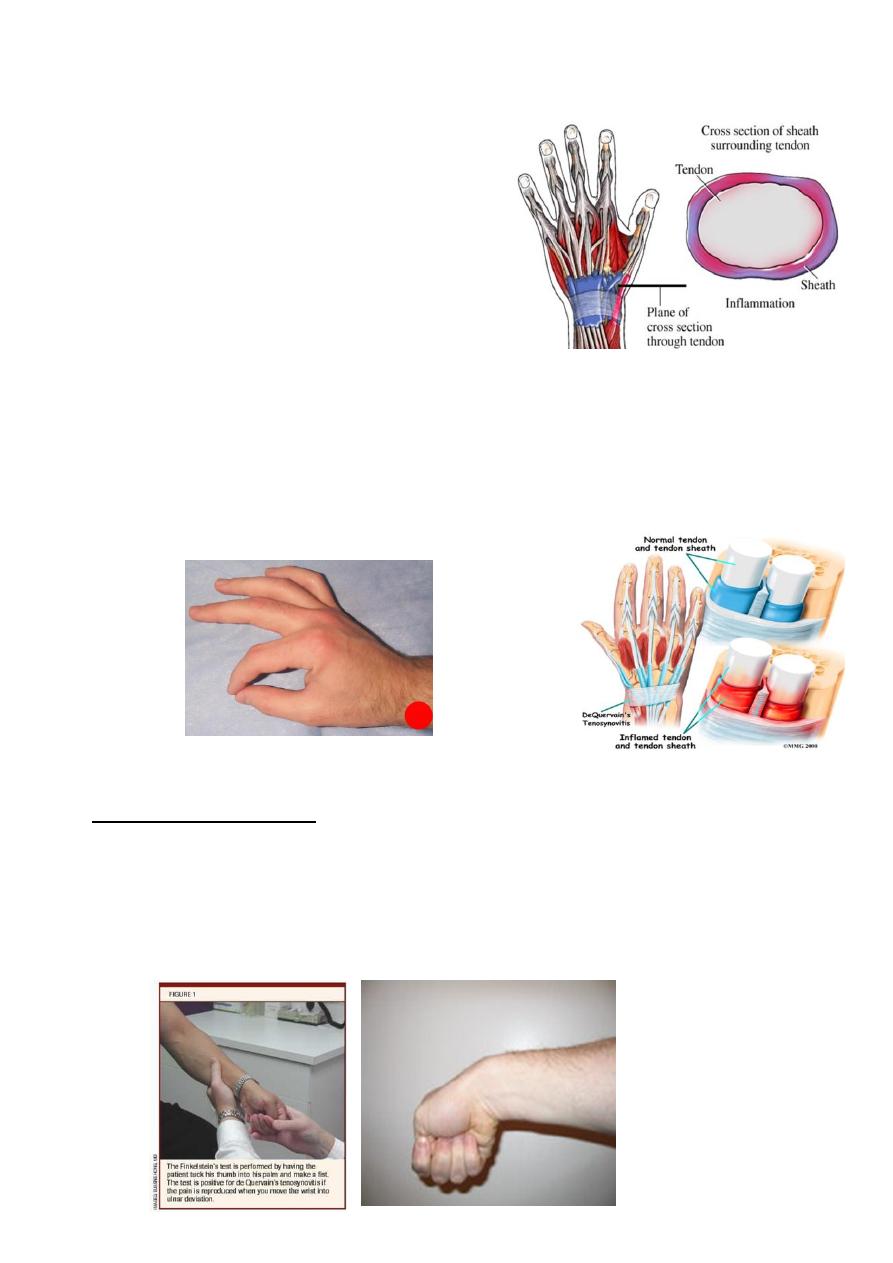
9
There may be a history of unaccustomed activity ,such as pruning roses, cutting with
scissors or wringing out clothes
Clinical features :
- Pain.
- and sometimes swelling, is localized to the radial side of the wrist.
- The tendon sheath feels thick and hard.
- Tenderness is most acute at the very tip of the radial
styloid.
- The pathognomonic sign :
is elicited by Finkelsteins test..
Hold the patient's hand firmly, keeping the thumb tucked in close to the palm,
then turn the wrist sharply towards the ulnar side.
A stab of pain over the radial styloid is a positive sign. Repeating the movement
with the thumb left free is relatively painless.
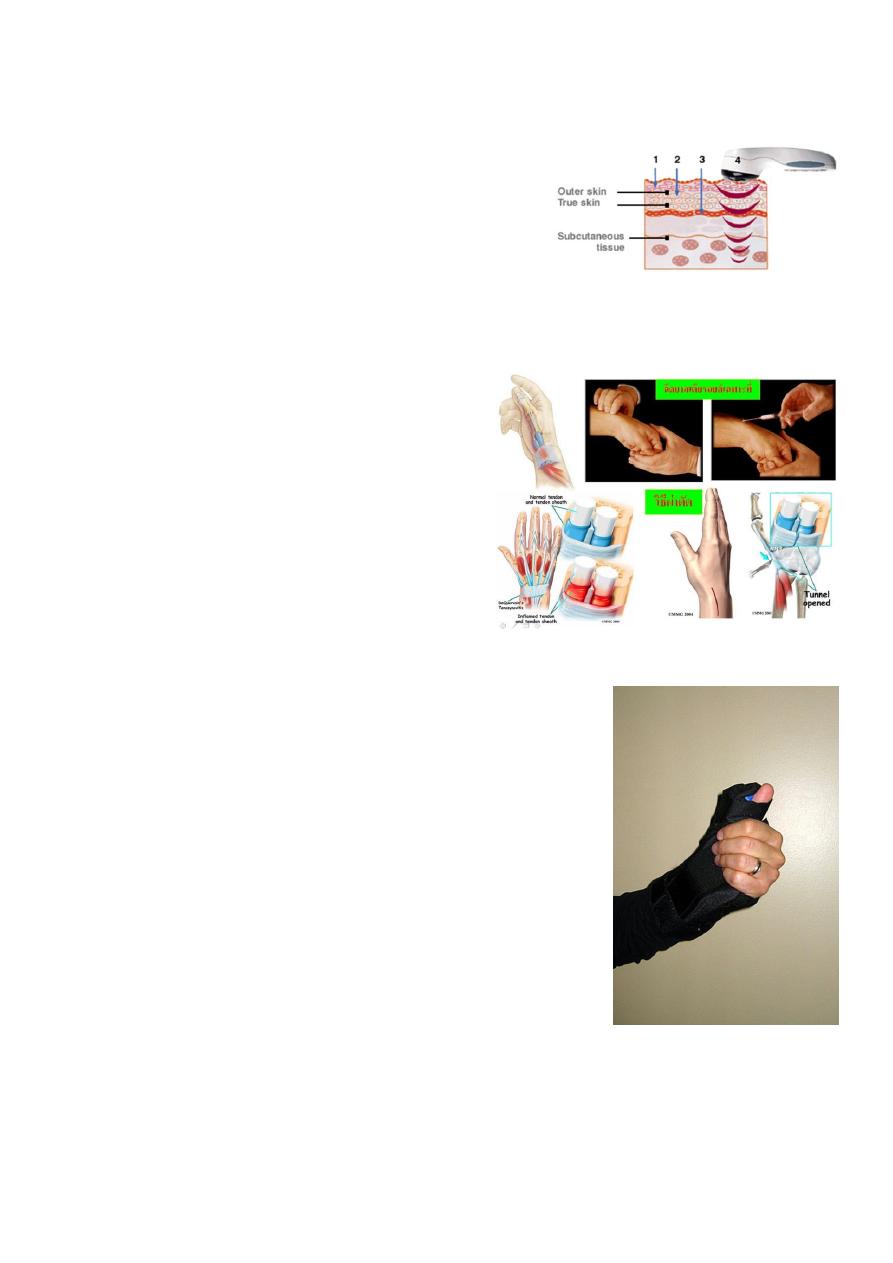
10
Treatment
:
- In early cases, symptoms can be relieved by ultrasound therapy .
- Or a corticosteroid injection into the tendon sheath.
- Sometimes combined with splintage of the wrist
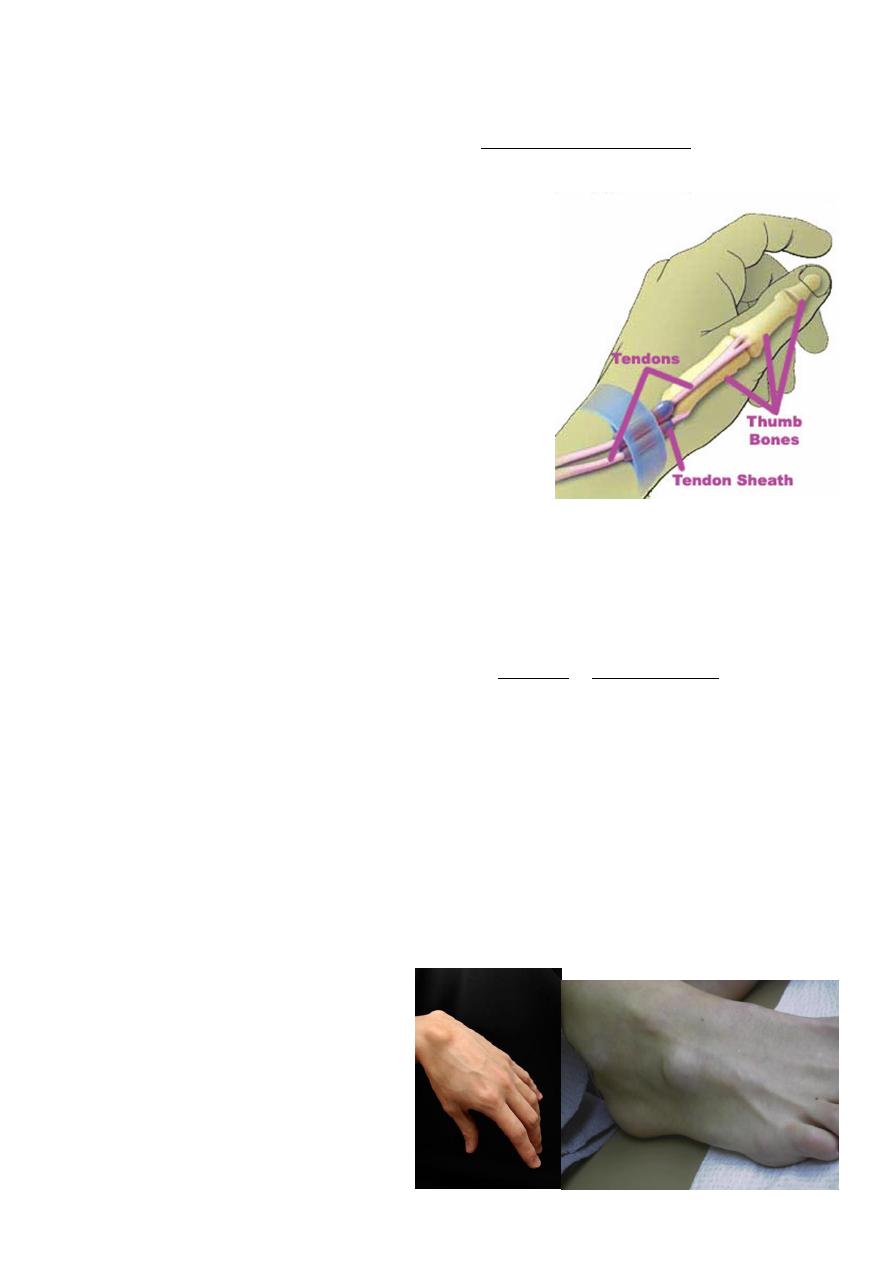
11
Resistant cases need an :
- Operation, which consists of slitting the thickened tendon sheath.
- Care should be taken to prevent injury to the dorsal sensory branches of the radial
nerve, which may cause intractable dysaesthia.
Ganglion :
- The ubiquitous ganglion:
- is seen most commonly on the back of the wrist.
- It arises from cystic degeneration in the joint capsule or tendon sheath.
- The distended cyst contains a glairy fluid
- The patient, often a young adult.
- presents with a painless lump.
- usually on the back of the wrist.
- Occasionally there is a slight ache.
- The lump is well defined, cystic and not tender.
- It may be attached to one of the tendons
.
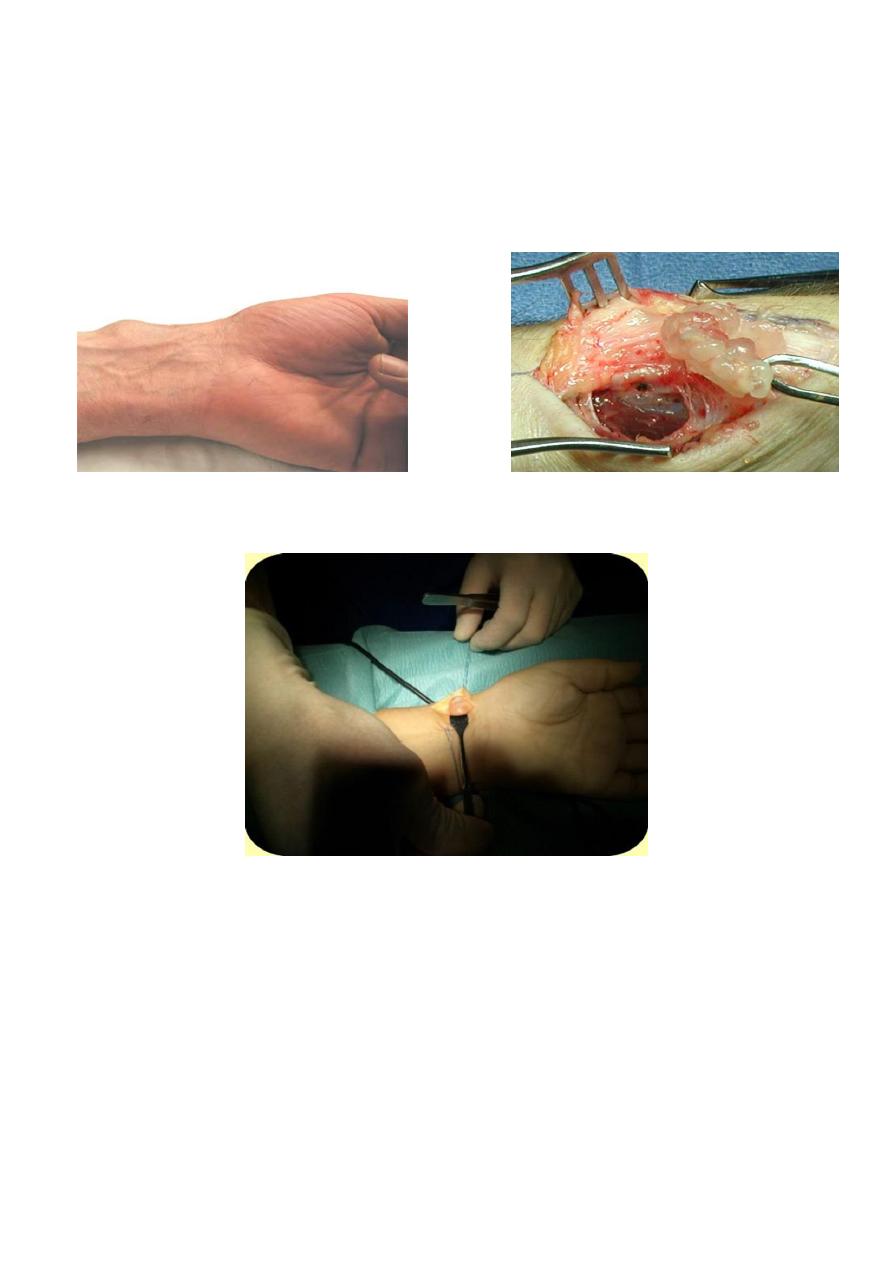
12
Treatment ;
- The ganglion often disappears after some months, so there should be no haste about
treatment.
- If the lesion continues to be troublesome, it can be aspirated.
- if it recurs, excision is justified, bur the patient should be told that there is a 30 per
cent risk of recurrence, even after careful surgery .
